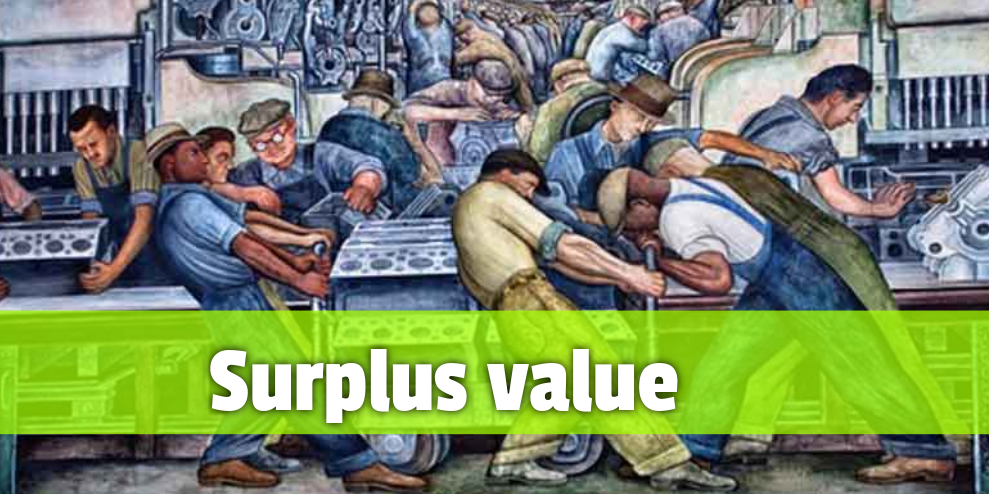Surplus value

Difference between the overall value generated by the use of labor power and the value of the labor power itself, i.e., the social cost of its reproduction in quality and quantity similar to that used.
Conditions for the production of surplus value
For there to be surplus value, there must first be the possibility of converting money into capital, i.e. labor power must be a commodity that is freely bought and sold on the market. For this to happen, the seller must be able to meet the buyer as people who exchange goods under "equal rights". The worker must be "free", that is, he is the owner of the commodity he is going to sell and he must be willing to sell his labor power for a certain time as something separate from himself - if he sold himself he would be a slave and if his labor power did not belong to him by right he would be a servant. Therefore, in addition to having no alternatives, he must be dispossessed of the means of production that would allow him to turn his labor power into commodities on his own.
For the transformation of money into capital the money-bearer must therefore find the free worker in the commodity market; free in the double sense that on the one hand he has, as a free man, his labor power as his own commodity, and that on the other hand he has no other commodity to sell, he is exempt and deprived, disengaged from all things necessary for the operation of his labor power.
Karl Marx. Capital, 1866.
As we can see, capital and wage labor appear in a framework of social relations that is historically very precise and in reality, very recent.
http://dictionary.marxismo.school/Surplus valueWhat characterizes the capitalist epoch, then, is that labor power takes on for the worker himself the form of a commodity that belongs to him, and his labor the form of wage labor. On the other hand, from that moment onwards, the commodity form of the products of labor became generalized for the first time.
Karl Marx. Capital, 1866.